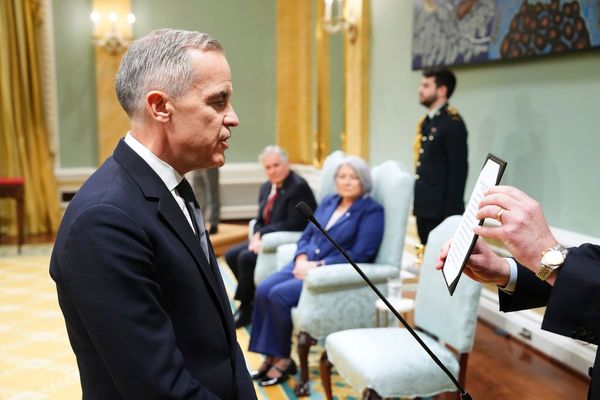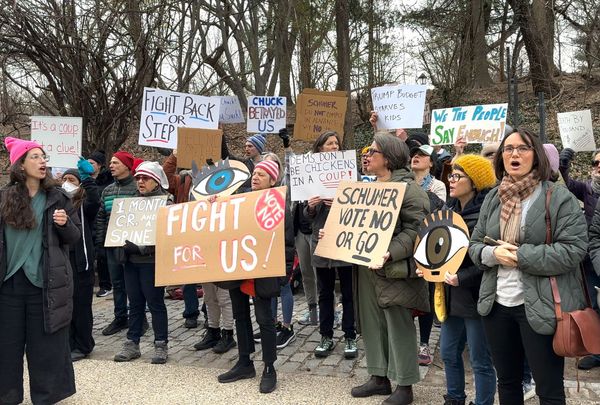SEATTLE — Brian Culpepper sat surrounded by tubes of paint and colored markers in his usual spot on the south side of Pine Street on Thursday, his artwork — inspired by comic books, Japanese anime and graffiti — displayed on the side of the building behind him.
He said it broke his heart and made his stomach hurt to see downtown taken over by drug users and others bent on lawlessness. He’s had guys offer to sell him handguns for $100 and recently shooed away a man who had laid out a tarp to hawk what Culpepper assumed were stolen goods.
But in the week since the Seattle Police Department flooded Third Avenue between Pike and Pine streets with officers following two deadly shootings and other incidents of street violence, Culpepper and those who frequent the area said it already feels safer.
The big question on everybody’s mind, though, is how long will the relative peace last and how long can police maintain the kind of uniformed presence that seems to be deterring the open-air drug dealing that’s long plagued the area locally known as The Blade.
Business owners and residents of Little Saigon International District, 1 1/2 miles southeast of the downtown retail core, said they too have seen big changes at 12th Avenue South and South Jackson Street since police broke up an open-air drug market. But they also wondered if the cleaned up streetscape would remain that way.
“I want to say good job,” Selas Asrat, a Little Saigon resident in her 60s, said of the police operation in the neighborhood as she was on her way to buy bread. “It was not safe. I’m glad they cleaned this area.”
Sgt. Randy Huserik, a spokesman for Seattle police, said undercover operations were underway at both locations in the weeks before uniformed officers were sent in to provide a visual presence.
“It’s not like those are the only two places in the city where crime is occurring,” he said. “Just because you don’t see a uniformed presence doesn’t mean it’s not being dealt with.”
Criminal charges filed Wednesday against a 23-year-old Seattle man document how a Seattle police officer — wearing street clothes and equipped with binoculars — watched hand-to-hand drug transactions of fentanyl pills in the 1500 block of Third Avenue on Feb. 17 and sent in an arrest team. The officer’s report, written March 5, notes the more-recent violence in the area:
“This specific area has been the subject of multiple complaints regarding drug use/dealing. This area is a well-known crime area to include shootings, stabbings and robberies,” the officer wrote in charging papers. “In the past two weeks, there have been two homicides and one person shot in the face, in this block.”
KV Bui, who with her husband Nick owns Dong Thap Noodles on 12th Avenue, just north of Jackson, said officers used their restaurant and a nearby building to conduct surveillance during the undercover investigation at the intersection.
“It’s amazing how they do it — they monitor activities for two months and then start busting them down,” she said.
A couple hundred people used to hang out on the southeast corner of 12th and Jackson to smoke fentanyl, but there was no one loitering outside The Seattle Herbs & Grocery store on Thursday afternoon. Handwritten signs, asking people not to stand or smoke in front of the doors, were still on display in the windows facing Jackson.
“I feel pretty good right now. I don’t know how long they can keep it like that,” store employee Reggie Lu said of police, who still have a mobile precinct, a dark blue van with police markings, parked at the shopping plaza across the street and are regularly seen patrolling the neighborhood in police SUVs.
Another mobile precinct was still parked on Third Avenue across from International Cigar and Tobacco, the smoke shop Amir Yousuf has owned for 25 years. He said people have started using the bus stop outside his doors again, instead of walking to a stop two blocks to the north, and the McDonald’s restaurant on the corner reopened last week after temporarily closing following the fatal shooting of 15-year-old Michael Del Bianco on March 2.
A water fountain on the west side of Third — near the spot where Del Bianco collapsed after being shot — had been turned into a sidewalk memorial, draped with balloons and encircled with candles and flowers. Family photos affixed to white poster paper hung on the facade outside Prestige Copy & Print. “Rest in peace, Mikey. I love you,” was written on one of them.
“Did somebody get shot?” a delivery man, carting in cases of beverages, asked one of Yousuf’s employees.
“Where have you been?” she answered with a laugh.
Yousuf said he’s grateful for the increased police presence and said while the drug activity outside his business has quieted down, “a lot of those activities start after dark.”
“So, it’s changed. For how long?” he asked.
Huserik, the police spokesman, said uniformed officers deployed to the two locations are working in ever-expanding circles around those core areas, checking for places people may be gathering and taking enforcement action when they come across illegal activity. Police leaders, he said, are constantly assessing what’s working well and what isn’t along with staffing levels, given the number of available officers fluctuates as people go on leave or return to work.
So far, police are not seeing “the major clusters or that kind of big hub of activity we’d seen at both locations,” Huserik said.
Around the corner from Yousuf’s smoke shop, Culpepper left open the trunk and driver’s door of his SUV as he set up art supplies at his sidewalk stall — something that would have been unthinkable a week or two ago due to concerns about theft.
But Culpepper, who was commissioned to paint the mural that now adorns a wall between the McDonald’s and the entrance to Westlake Station, wasn’t worried. He said he’s witnessed officers swoop in to stop drug users from smoking up in the alcove, where an elevator leads down into the station.
“I’ve watched this city grow. I’m so proud of what SPD’s been doing recently. It was a nightmare down here, with the tinfoil and the violence,” he said, a reference to drug users who heat fentanyl pills on bits of foil and suck in the smoke through straws. “It got to be too much, even for me, and I’ve been coming downtown since I was 7. I haven’t smelled aluminum foil for two days now.”
But for KV Bui, the owner of the noodle shop in Little Saigon International District, the police enforcement is too little too late. Her restaurant has been broken into four times in the past year and she said insurance providers will no longer cover the business. Before the police crackdown, she regularly chased off drug users who would pop into the restaurant, offering to sell her everything from steaks to toilet paper.
By the end of the year, Bui and her husband plan to relocate their restaurant to Southcenter, where there’s better parking and fewer safety concerns.
“I’m Vietnamese and I want to stay in the community. It used to be really family oriented,” she said of 12th and Jackson. “It’s sad to see it going down like this. It’s not safe, no one wants to be here.”
Bui said police have assured her they have the resources to keep the pressure on to ensure those displaced by the recent operation don’t come back.
“I’m still in the middle,” she said. “I’m not sure what to believe. I hope it lasts.”
———







